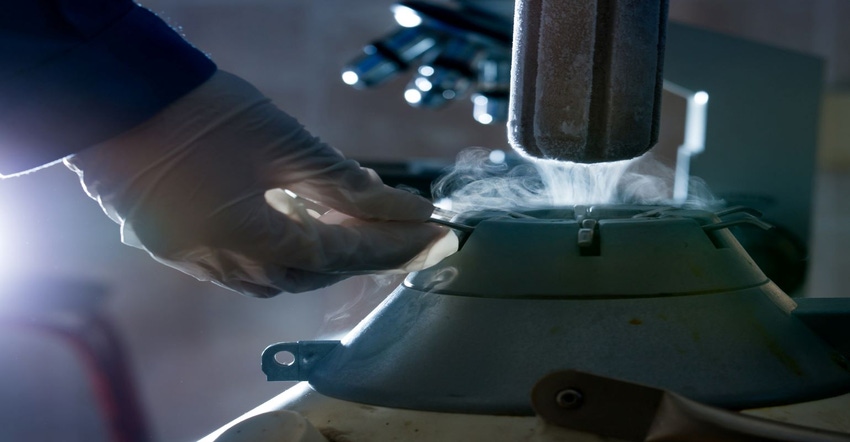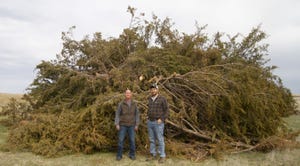Benefits of estrus synchronization and artificial insemination
A 60 to 75 day breeding season is an important management tools for producers.
May 11, 2022

There are several benefits of estrus synchronization of beef cows. Regardless of when your calving season occurs, manipulating the reproductive process of your cow herd can result in shorter breeding and calving seasons. Accordingly, more calves born earlier in the calving season result in an older, heavier, more uniform calf crop when you wean.
Shortened calving seasons permit improvements in herd health and management such as timing of vaccinations and practices that add to calf value with less labor requirements (or at the very least concentrating labor efforts into a shorter time frame). Cows that are closer to the same stage of gestation can also be fed and grouped accordingly which facilitates a higher level of management.
Estrus synchronization can be used for natural mating or breeding by Artificial Insemination (AI). Synchronization protocols permit us to concentrate the labor needed for heat detection to a few days, and in some cases eliminate the need for heat detection when cows can be bred on a timed basis.
Use of AI permits us to get more cows bred to genetically superior sires for traits of economic importance to our operation’s production and marketing goals. Synchronization at the onset of breeding season, results in more cows having heats in the first 18 – 25 days of breeding season. Female’s return heats will remain synchronized to a degree, which gives a second chance to AI each female in the early part of breeding season. Without any synchronization, herd managers are faced with a 21 days of continual estrus detection and typically only one opportunity for AI in most females.
Bottomline: estrus synchronization can be an important management tool to get cows settled as early in the breeding season as possible and get cows bred to bulls with highest possible genetic value. A defined breeding season is important to permit meaningful record keeping, timely management and profit potential. Maintaining a 60 to 75 day breeding and calving season can be one of the most important management tools for cow calf producers.
Source: Oklahoma State University, which is solely responsible for the information provided and is wholly owned by the source. Informa Business Media and all its subsidiaries are not responsible for any of the content contained in this information asset.
You May Also Like
.png?width=300&auto=webp&quality=80&disable=upscale)


